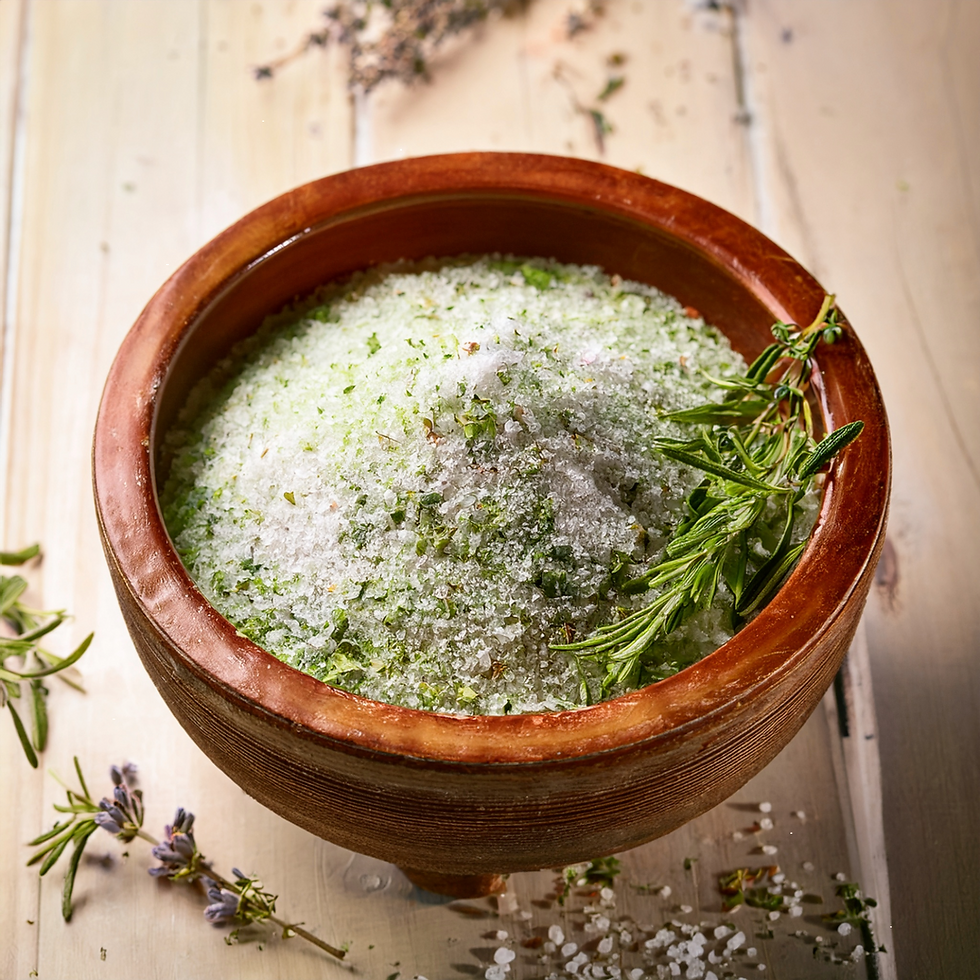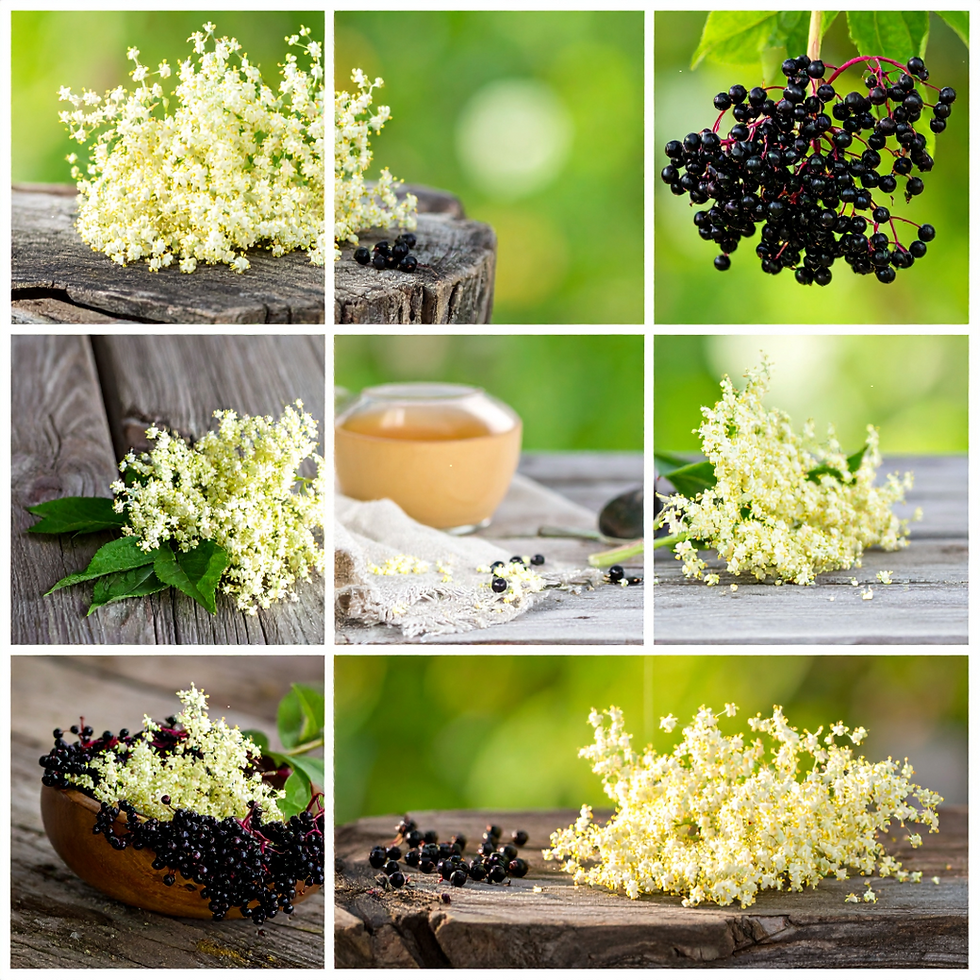Preserving the Harvest: Freezing, Drying, and Storing Herbs
- Kenneth Wright
- Aug 26, 2025
- 2 min read

Medical Disclaimer: The information provided in this blog series is for general knowledge and educational purposes only. It is not intended to diagnose, treat, cure, or prevent any disease or medical condition. Always consult with a qualified healthcare provider before beginning any new herbal regimen or making significant changes to your health routine, especially if you are pregnant, nursing, have a chronic illness, or are taking prescription medications. Use herbs responsibly and in consultation with trusted professionals.
As the last of the growing season winds down, preserving your herbs ensures you can enjoy their flavor and healing qualities all winter long. The main preservation methods—freezing, drying, and storing in oil or vinegar—each have their own benefits and best uses.
Drying herbs is one of the simplest and most traditional methods. Air-drying bundles in a cool, dark place or using a dehydrator locks in flavor for months. Once dry, herbs should be stored in airtight containers away from light to maintain potency. This method works beautifully for hardy herbs like rosemary, thyme, and oregano.
Freezing herbs preserves more of their fresh flavor and color. Tender herbs like basil, dill, and parsley do well when chopped and frozen in ice cube trays with a bit of water or olive oil. This allows you to pop a cube into soups, sauces, or sautés as needed.
Storing herbs in oil or vinegar infuses the liquid with their essence, creating flavorful condiments and medicinal preparations. Herbal vinegars make wonderful salad dressings and tonics, while herbal oils can be used in cooking or for topical remedies. By taking time now to preserve your herbs, you’re ensuring that your winter meals and remedies will be just as vibrant as the peak of summer.
Woody, resinous herbs (rosemary, thyme, sage, oregano) dry beautifully and keep their antimicrobial, digestive, and antioxidant punch. Tender herbs (basil, dill, cilantro, parsley) shine when frozen—their bright chlorophyll and volatile oils stay lively in oil or water cubes. Vinegar or honey infusions (oxymels) capture minerals and aromatics for winter tonics.
Winter Pantry Herbal Salt
Ingredients: 2 Tbsp dried rosemary, 2 Tbsp dried thyme, 1 Tbsp dried sage, 1 tsp lemon zest (dried), ½ cup mineral-rich sea salt.
Instructions: Pulse herbs/zest to a coarse rub; mix with salt. Store airtight away from light. Use on roasted roots, soups, and breads.
At Verdigris Market Garden, we believe herbalism isn’t just a practice—it’s a lifestyle rooted in connection, care, and conscious choices. On our website, www.verdigrismarketgarden.com, you’ll find an ever-growing selection of plant-based apothecary, personal care, and wellness products, handcrafted in small batches with the herbs we grow right here on our off-grid urban farm.
For deeper guidance on bringing herbal wisdom into everyday life, check out my books: Everyday Herbal: Solutions for Natural Living and Herbal & Holistic Healthcare for Men—both available online and on Amazon.
Stay connected with us on Instagram, Facebook, and YouTube for daily inspiration, seasonal updates, and new videos from the garden and beyond.
#PlantBasedLiving #HerbalWisdom #NaturalWellness #HolisticHealth #ApothecaryLife #GrowYourMedicine #SustainableSkincare #VerdigrisMarketGarden





Comments